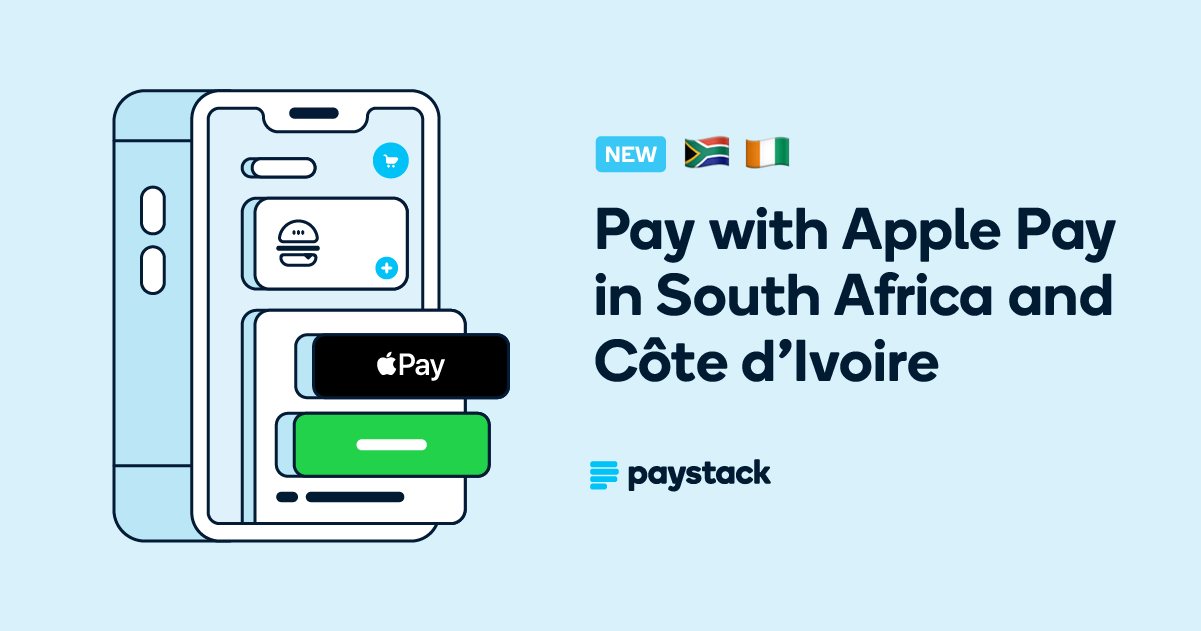

TGIF 🎉
Tomorrow, TechCabal will be launching a new weekend series. For our audience who enjoy long-form feature articles, we promise to hook you up. Every Saturday, we will publish one story to keep you engaged during the weekend across a variety of topics.
If you want to get tomorrow’s edition, sign up to TC Scoops and we’ll send you an alert as soon as it’s published.
Flutterwave to recover $24 million lost to unauthorised POS transactions
Last month, we wrote about financial institutions coming together to fight fraud. Our exclusive today will tell you why they have good reason to.
African fintech giant Flutterwave is seeking to retrieve $24 million illegally transferred in October 2023 through a combination of a “technical glitch” and potentially fraudulent activity by POS merchants.
Following a High Court ruling on February 1, the fintech company will reach out to over 6,000 account holders across 35 banks and financial institutions involved in the unauthorised transactions.
The incident: On October 10 2023, a technical issue caused unauthorised transfers from a Flutterwave client to over 6,000 accounts across 35 banks and fintechs. Flutterwave quickly alerted the institutions, temporarily suspended the affected accounts to prevent further losses, and offered the institutions indemnity for reversing the transfers.
Now, a recent High Court ruling will allow Flutterwave to contact account holders via email, SMS, and WhatsApp messages, with assistance from a recovery agency to recover the funds, according to court documents
KYC in focus: Amidst increasing fraud attempts in Nigeria’s financial sector, the Central Bank of Nigeria has mandated stricter KYC measures. These require customers’ Bank Verification Number (BVN) or National Identification Number (NIN) for account opening by March 2024, alongside plans to introduce new security features on Point of Sale (PoS) terminals.
The success of Flutterwave’s fund recovery efforts hinges on accurate customer information held by banks and fintechs, highlighting the importance of robust KYC protocols.
Access payments with Moniepoint

Moniepoint has made it simple for your business to access payments while providing access to credit and other business tools. Open an account today here.
Leatherback CEO sues EFCC for defamation
After three months of turmoil, Ibrahim Ibitade, CEO of Leatherback, a cross-border payments startup that operates in seven countries, has successfully cleared his name following an intense episode with Nigeria’s anti-graft agency, the EFCC.
Ibitade deemed the EFCC’s actions “bullying” and is now seeking accountability for the agency’s lack of due diligence.
Here’s what happened: In September 2023, rumours were circulating that Leatherback lost money to SDQ Facilitators—an unregulated Nigerian currency trading company. Leatherback denied the rumours, but an EFCC investigation into SDQ Financials was launched. The investigation revealed that SDQ used Leatherback’s naira and USD wallets, but Leatherback claims they were unaware of any fraudulent activity. Subsequently, in November 2023, the EFCC declared Ibitade wanted for allegedly conspiring to obtain money under false pretence and posted a now-deleted photo of him on their Instagram page.
CEO fights back: In November, Ibitade denied that he was hiding from the EFCC and has now stated that he has been cleared of any wrongdoing. The agency deleted their Instagram post of Ibitade after two petitions from Leatherback, and now, the payments company is suing the EFCC for defamation and wants them held accountable for their actions.
Leatherback says it will continue its trajectory towards success, as the company claims it processed $500 million in monthly transactions by June 2023 and was nearing the $1 billion mark before the EFCC episode.
Secure payment gateway for your business

Fincra’s payment gateway enables you to easily collect Naira payments as a business; you can collect payments in minutes through bank transfers, cards, virtual accounts and mobile money. Create a free account and start collecting NGN payments with Fincra.
Kenya to penalise unregistered AI firms with $6,250 fine
Kenya, a nation at the forefront of African tech advancement, has proposed an AI and robotics law that includes fines of up to $6,250 for unlicensed businesses.
The Kenya Robotics and Artificial Intelligence Society Bill 2023 introduced the fine to regulate and support the growing sector.
The bill also outlines the establishment of the Robotics Society of Kenya (RSK), a proposed regulatory body empowered to issue licences and levy the $6,250 fine on unlicensed businesses. Failure to comply could even land offenders in jail for two years. This body will also advise the government on emerging trends in AI and robotics.
Innovation booster or tax grab? The proposal has sparked discussions among AI enthusiasts and advocates, who view the law as a “severe threat to innovation and growth” and believe that it is merely another avenue for the government to create unnecessary bureaucracy and generate revenue.
This isn’t the first time Kenya has faced such criticism. In 2022, a similar proposal to regulate ICT professionals was shot down by the then-president, Uhuru Kenyatta, after it faced immense pushback for creating excessive hurdles and stifling freelance work in a sector already struggling with a talent shortage.
AI in Africa: The AI sector is growing across Africa. Of the 2,400 AI companies on the continent, as of 2022, 40% were established in the previous five years. If Africa captures even 10% of the global AI market, analysts predict a staggering $1.5 trillion boost to its GDP by 2030.
For other African countries, Mauritius was the first country in Africa to publish a national AI strategy in 2020. In 2021, Egypt launched its national AI strategy to deepen the use of AI technologies and transform the economy. In 2023, the Nigerian government invited global AI researchers of Nigerian descent to collaborate on the national AI strategy.
Ethiopia to ban importation of non-electric cars
Ethiopia is making headlines with its latest decree: a ban on gasoline and diesel car imports, and express admission on electric vehicles..
This daring decision, announced by Transport Minister Alemu Sime, prioritises both green energy and reducing dependence on fuel imports.
A bold shift to green transport: In line with Ethiopia’s Ten Year Development Plan, which targets 152,800 EVs by 2030, the ban will involve smoke tests for current vehicles, with those failing considered unsuitable for road use. Additionally, the government intends to establish a robust network of EV charging stations to support the expected increase in electric vehicles. The government’s decision in 2022 to offer tax exemptions for electric cars also underscores its commitment to green initiatives.
However, with only approximately 7,200 EVs out of 1.2 million cars on the road, Ethiopia has a long journey ahead. As of October 2023, a litre of gasoline and diesel reportedly cost ETB77.65 ($1.37) and ETB74.85 ($1.32), respectively. Sime highlighted the financial burden of fossil fuel imports, revealing that Ethiopia’s expenditure of €6 billion ($6.4 billion) on petrol and diesel imports in 2023 necessitated the ban.
Details are a little thin at this point: Despite Ethiopia’s ambitious goals, It is unclear when the new policy will take effect and how it will impact existing vehicle orders. According to reports, in 2021, Ethiopia imported vehicles worth approximately $1.19 billion. However, several companies are starting to assemble and sell EVs locally, including Hyundai and Marathon Motor Engineering.
Accept fast, secure payments from millions of Apple Pay users

🚀 Paystack is excited to announce that merchants in South Africa and Côte d’Ivoire can now accept online payments from millions of global customers, with Apple Pay! Learn more →
Funding Tracker
This week, Nigerian edtech startup Klas secured $1 million in pre-seed funding in a round led by Ingressive Capital, with participation from Techstars, HoaQ Capital, and several angel investors.
Here are other deals for the week:
- Remoteli, a Ghana-based tech talent startup, raised $315,000 in pre-seed funding. The funding round was led by Jeremie Frimpong, a Ghanaian-Dutch professional footballer who plays for Bundesliga club Bayern Leverkusen.
- PowerUP, a Uganda-based electric cooking start-up, announced an initial close of its seed round for an undisclosed amount. The round was led by Delta40, the Nairobi-based venture studio, with participation from Autodesk Foundation’s investment and pro bono support.
Before you go, our much anticipated State Of Tech In Africa Report for Q4 2023 is now out. Click this link to download it.
Follow us on Twitter, Instagram, and LinkedIn for more funding announcements. You can also visit DealFlow, our real-time funding tracker.
Attend GEC+ Africa

Join entrepreneurs and leaders from 43+ African countries in Cape Town at this year’s GEC+Africa conference. Register here to reserve your place.
The World Wide Web3
Source:

|
Coin Name |
Current Value |
Day |
Month |
|---|---|---|---|
| $44,157 |
+ 2.32% |
– 3.63% |
|
| $2,425 |
+ 0.02% |
+ 3.67% |
|
|
$7.57 |
+ 31.19% |
+ 63.31% |
|
| $103.23 |
+ 3.38% |
+ 4.66% |
* Data as of 00:00 AM WAT, Febraury 9, 2024.

Effortlessly make global settlements in over 30 currencies across 120+ countries spanning four continents, delivering cost-effective and reliable solutions to your clients, suppliers, and customers. Get started today.
- For African founders, applications are open for the Accelerate Africa accelerator for startups on the continent. Founders will receive coaching from two of Africa’s top operating founders, access to a network of 75+ investors on demo day, and Clinics and office hours for your legal, finance, and tech needs. Apply by February 16.
- Are you a young girl with a passion for technology and innovation? Apply now for the National Girls in ICT Competition 2024. The competition is an initiative that creates a platform for girls in secondary school to showcase their skills and creativity in various ICT-related domains. Apply by February 18.
- Applications are now open for the 10th cohort of the Orange Corners Nigeria Incubation Programme(40,000 Euros in funding). The programme empowers aspiring entrepreneurs to transform their dreams into thriving realities. Apply by February 18.
- Report for the World once again invites independent news organisations across the globe to join its growing network of host newsroom partners. Newsrooms will be asked to make the case for the beat they want to cover and how they will provide support and mentorship to their prospective corps members. In turn, Report for the World will fund half the salary of the reporters for up to three years. Apply by February 20.
What else is happening in tech?
Written by: Mariam Muhammad
Edited by: Kelechi Njoku & Timi Odueso
Want more of TechCabal? Sign up for our insightful newsletters on the business and economy of tech in Africa.
- The Next Wave: futuristic analysis of the business of tech in Africa.
- Entering Tech: tech career insights and opportunities in your inbox every Wednesday at 3 PM WAT.
- In a Giffy: business decisions powered by data-driven insights and analysis you can trust.
- TC Scoops: breaking news from TechCabal
P:S If you’re often missing TC Daily in your inbox, check your Promotions folder and move any edition of TC Daily from “Promotions” to your “Main” or “Primary” folder and TC Daily will always come to you.





















